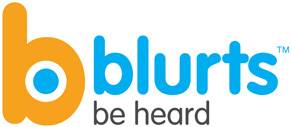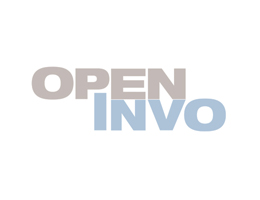In order to achieve storytelling marketing success, CMOs have to be willing to take risks. Even with all of the data and metrics available to evaluate, sometimes the best ideas come directly from human intuition.
On this episode of Renegade Thinkers Unite, Drew interviews Rich Kylberg, Vice President of Corporate Marketing and Communications at Arrow Electronics. Arrow is a $24 billion global supplier for a wide array of technology and products, and Rich has helped them break into new ways of communicating internally and externally.
Throughout this podcast, Rich explains how his background in literature allows him to see marketing campaigns in new ways and why casting a vision internally is needed before you can communicate identity externally. Arrow’s groundbreaking SAM vehicle technology is revolutionizing many industries, and you’ll be inspired by Rich’s explanation of this pursuit.
Their conversation is a perfect mix of marketing knowledge and inspiration – you don’t want to miss it. Click here to listen!
Subscribe on Apple Podcasts – Stitcher – or Podsearch.
How Rich helped Arrow create a common identity
When Rich joined the Arrow team, they had recently acquired over 130 companies and many hadn’t yet fallen in line with the overarching Arrow brand. Arrow was on the verge of becoming a holding company too comfortable in their own success, but Rich was determined to take some risks and create a guiding theme that would direct every employee and customer interaction. Thus, the phrase “guiding innovation forward” was born. Rich explains that “you have to inspire your employees before you can market your company externally” and this progress was essential for Arrow to continue growing. It created a conversation starter that is still being talked about today. To hear exactly how Rich achieved this lofty goal, be sure to give this episode a listen.
Why risk taking in marketing is so important
Rich and Drew are adamant about risk-taking in marketing – it’s one of the key aspects of being a Renegade Thinker. On this episode, Rich explains that the opportunity to attain exponential rewards are worth taking substantial risks and that the fear of mediocrity is often the driving force behind risk-taking. CMOs in any B2B environment should ask themselves these questions: What risks am I willing to take in my marketing? What will be the source of my courage? How am I going to prepare? After you consider these questions, remember that as a marketer you need to be empowered to try ideas, keep what works, and move past what doesn’t. Without risky marketing decisions, Rich and his team never could have developed the storytelling marketing campaign that moved Arrow into the future of connecting with clients and telling great stories. Be sure to discover the story on this episode.
Arrow’s innovative storytelling marketing campaign and how Rich and his team burst through the barriers they encountered
Arrow Electronics recently unveiled their latest storytelling marketing campaign, and it’s one that resonates with people across the country. When Rich and his team were connected with a former Indy Racing League race car driver who was sadly diagnosed as a quadriplegic after a crash in 2000, they came up with the SAM car technology – a car that would allow drivers with disabilities to regain their independence. When asked about the project, Rich’s team explained that “We hope the SAM car continues to drive technology innovation forward and inspire people to dream big because anything is possible.” Had Rich and his marketing team forgone risk-taking and stuck with what is “normal” and expected in the marketing industry, this amazing project never would have left the idea board. It’s sure to inspire you and your team to take marketing risks and delve into the unknown so be sure to get all of the details by listening to this episode of Renegade Thinkers Unite.
What You’ll Learn
- [1:25] Drew introduces his guest for this episode, Rich Kylberg of Arrow Electronics
- [2:48] Rich’s favorite risk-taking story from his childhood
- [8:00] How Rich’s educational background impacts his current career
- [13:18] The story behind how Rich joined the Arrow team and how they created a common identity
- [17:45] Taking the internal identity and transforming it into an external message
- [21:55] Arrow’s program that brought their innovative ideas to life that enhance humanity
- [27:30] The barriers Rich’s team encountered while developing the SAM technology
- [33:00] Rich shares the best lessons he learned through the SAM journey
- [37:13] Why you should bring in an outside firm to assist your company in storytelling
- [39:51] The power of a plan on a page
- [42:07] Drew summarizes his conversation with Rich
Connect With Rich:
- About Arrow
- Connect with Rich on LinkedIn
- Follow Rich on Twitter
- Follow Rich on Facebook
Resources & People Mentioned
Connect with Drew
- http://renegade.com/
- On LinkedIn
- On Twitter
- On Facebook
- On Instagram
 While the proverbial “grain of sand” is a myth
While the proverbial “grain of sand” is a myth  Sometimes the irritant hits the founder personally. Ashok Kamal, founder of
Sometimes the irritant hits the founder personally. Ashok Kamal, founder of  Outside help also comes in the form of advisers who can add layers of experience. Offered Bennu’s Kamal “You can avoid a lot of unnecessary mistakes by establishing an advisory board from the outset.” “It’s easy to neglect this task in favor of immediate concerns but once we recruited seasoned and candid advisers, Bennu become much more efficient and productive,” added Kamal. In Jesse Middleton’s case the critical advice was more home grown, as his “wife gave [him] a kick in the ass to really get the ball rolling!”
Outside help also comes in the form of advisers who can add layers of experience. Offered Bennu’s Kamal “You can avoid a lot of unnecessary mistakes by establishing an advisory board from the outset.” “It’s easy to neglect this task in favor of immediate concerns but once we recruited seasoned and candid advisers, Bennu become much more efficient and productive,” added Kamal. In Jesse Middleton’s case the critical advice was more home grown, as his “wife gave [him] a kick in the ass to really get the ball rolling!” Many entrepreneurs share the ability to see beyond the making of their first “pearl,” measuring success in terms of helping others grow their own. Offered Kamal, “I hope the business will outgrow its founders so at that point, personal success would mean being in a position to help aspiring entrepreneurs to achieve their dreams.” Similarly, Middleton noted, “I’d like make it to a point where I can invest in other’s ideas that can make the world a better place.” Added Lutzker, laced with the irony that bedevils boot-strappers, “I’d like to think that success is still a starting point, not only a result.”
Many entrepreneurs share the ability to see beyond the making of their first “pearl,” measuring success in terms of helping others grow their own. Offered Kamal, “I hope the business will outgrow its founders so at that point, personal success would mean being in a position to help aspiring entrepreneurs to achieve their dreams.” Similarly, Middleton noted, “I’d like make it to a point where I can invest in other’s ideas that can make the world a better place.” Added Lutzker, laced with the irony that bedevils boot-strappers, “I’d like to think that success is still a starting point, not only a result.”